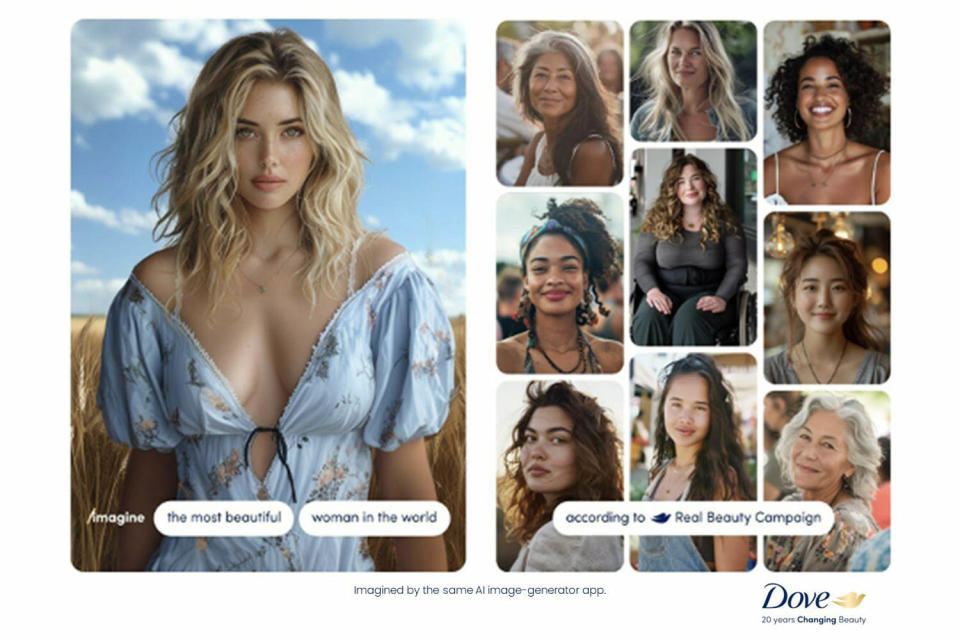Dove pledges to never represent 'real bodies' with AI in advertising
Dove, a beauty brand known for its 20-year marketing campaign around showcasing “real bodies,” has taken the initiative a step forward in the age of artificial intelligence.
Dove announced Tuesday that it would never use AI-generated imagery to represent “real bodies” in its advertising. Rather, the company will continue to use real photos of women, while also promoting more diverse AI-generated images based on prompts about beautiful women.
As most industries grapple with how to respond to advancements in generative AI technology, Dove’s approach is unusual. A slew of companies in tech, consumer products, entertainment, health care, leisure and more sectors have embraced AI as it currently performs and integrated tools like AI chatbots and AI-generated media. Dove, which carries products like soap, shampoo and deodorant, is one of the first major brands to suggest that AI-generated media can be harmful and should be improved.
Dove is one of just a few companies that have taken a critical approach to AI, and it says it is the first beauty company to do so. Customer service provider AnswerConnect previously pledged to have real people staff chatbots, not AI. Major tech companies that invest in and create AI tools have pledged to develop and use technology that can watermark AI-generated content, although such systems have yet to be implemented.

While Dove’s pledge says it will never use AI bodies to represent real ones in its advertising, it also released a “playbook” of ways in which consumers of generative AI tools can adjust prompts to get more diverse results that are more reflective of real women. Dove created AI-generated photos that more accurately depicted these women, but labeled them as AI, in an apparent effort to show that the technology can be improved and become less harmful to people’s body image and self-esteem.
In 2004, Dove launched an initiative backed by research into how women and girls considered themselves, finding that less than 2% thought they were beautiful. Dove began featuring unedited, underrepresented bodies and people in advertising, a move that would become increasingly popular and reflected in the body positivity movement in the 2010s.
Now, after surveying over 33,000 people in 20 countries, Dove found that over 1 in 3 respondents said they have felt the need to alter their appearance because of content they see online, regardless of knowing it is fake or AI-generated. In response, Dove’s advertisements compare the AI-generated output for prompts like “the most beautiful woman in the world” with more realistic AI-generated images of a diverse set of women.
This article was originally published on NBCNews.com

